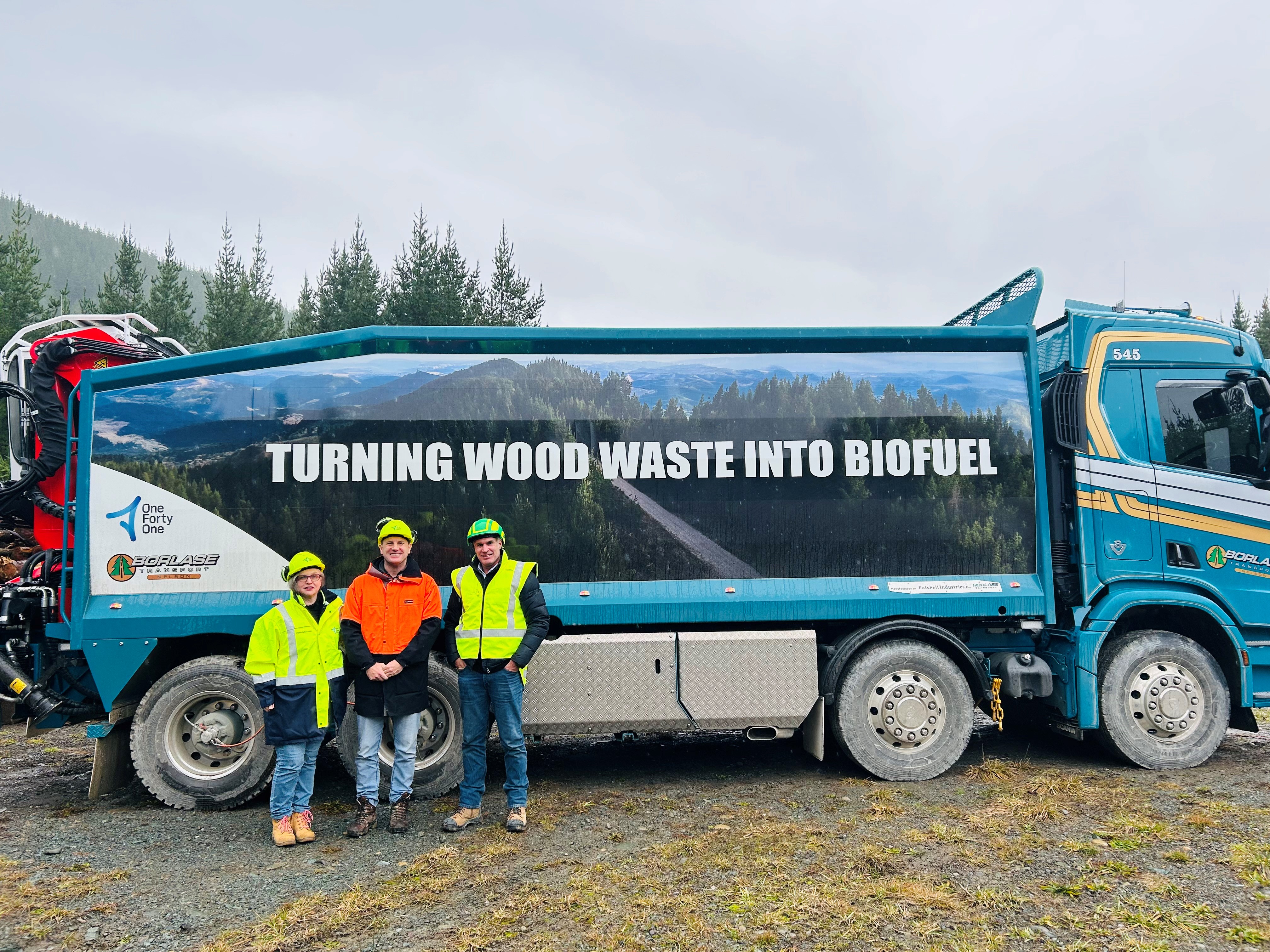Thinking globally, acting locally

Wendy Norris, chief executive for OneFortyOne, Sam Keenan, deputy director-general for Te Uru Rakau/NZ Forest Services, and Shaun Truelock, general manager for OneFortyOne NZ Forests, with one of the Borlase Transport ‘binwood’ trucks which are used to turn slash into useable woodchips. Photo: Supplied.
Turning slash from Tasman forestry operations into a valuable resource has been a success.
Since late 2021, OneFortyOne New Zealand Forests has invested over a million dollars in the collection, measurement, and storage of slash.
Slash is the wood fibre that is left on the ground after trees have been harvested. This could be anything from small branches to larger parts of the tree.
The larger pieces, known as ‘binwood’, are processed into woodchips and used as a biofuel for J.S. Ewers’ (A Tasman-based market garden) biomass boiler.
This switch has dramatically reduced J.S Ewers’ CO2 emissions by 98 per cent, equating to a reduction of 27,000 tonnes of CO2 annually.
“We have been impressed with the reduction and encouraged by the fact we are making good use of a waste product with a local source,” Pierre Gargiulo, general manager for JS Ewers, says.
This process of turning slash into woodchips and transporting it involves a team of local companies.
OneFortyOne’s forestry crews separate the binwood from the slash, Borlase Transport move it to storage sites, Canterbury Woodchip Supplies chip it, and Sollys deliver the chips to J.S. Ewers.
Over the next five years, OneFortyOne aims to reduce slash by 75,000 tonnes, which is equivalent to 2,000 logging trucks or 10 rugby pitches piled three metres high.
“Converting slash into biofuel is a way of helping New Zealand meet its emission targets while boosting the local economy and utilizing something that would otherwise sit on the hillside and be waste,” Shaun Truelock, Richmond-based general manager for OneFortyOne New Zealand Forests, explains.
Beyond biofuel, OneFortyOne is exploring other uses for slash. For example, The Green Circle company in Marlborough transforms slash into high-carbon biochar through pyrolysis.
Biochar improves soil health by retaining water and nutrients, reduces methane emissions from cattle feed, and sequesters carbon in the soil.
This initiative illustrates how forestry waste can be repurposed into sustainable, renewable energy sources, supporting New Zealand’s goal of net-zero emissions by 2050.
“It is a great example of thinking globally and acting locally,” Shaun says.
“We need to be offering solutions, not just talking about the environmental challenges we are facing. And our solutions need to benefit local communities like this initiative is.”
